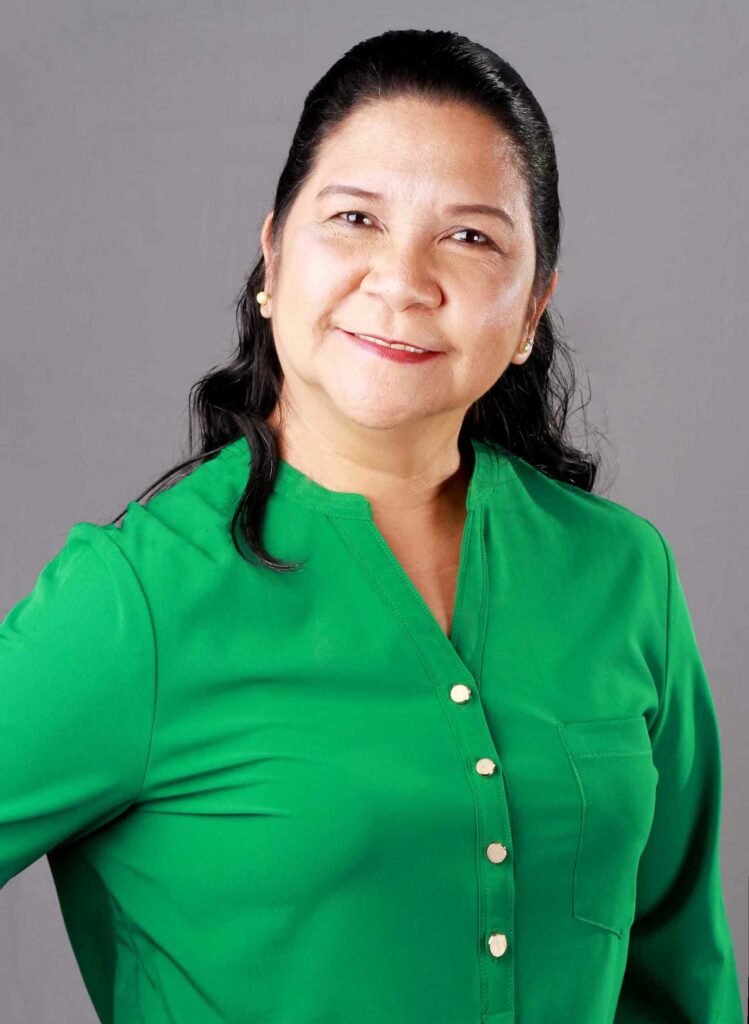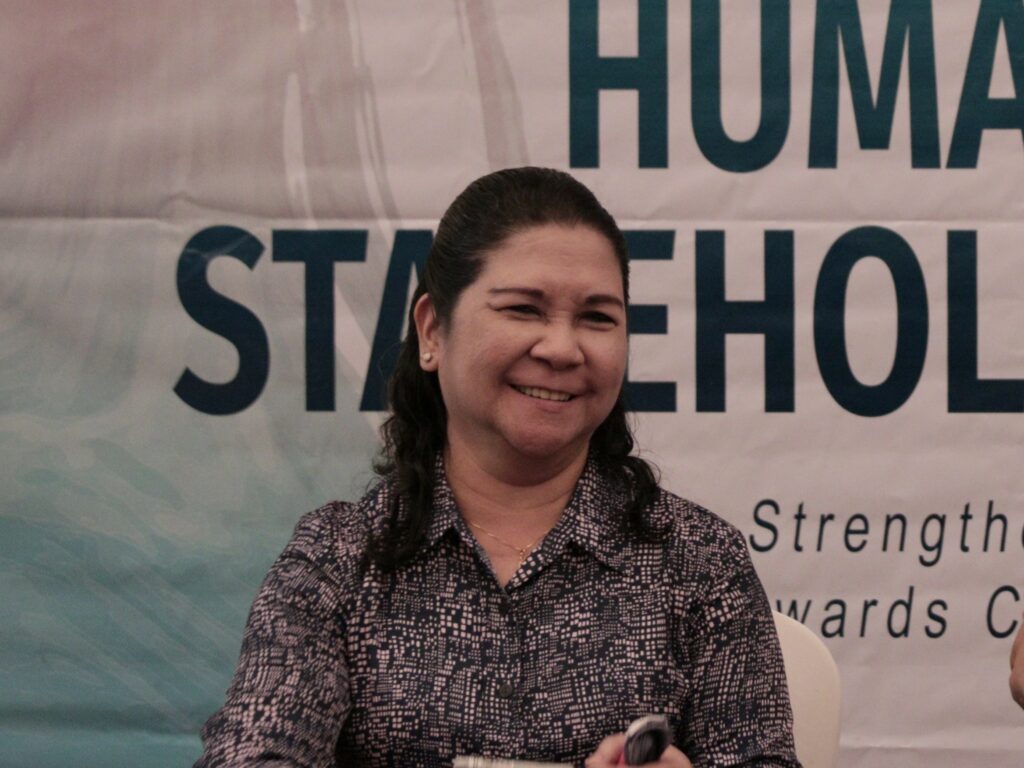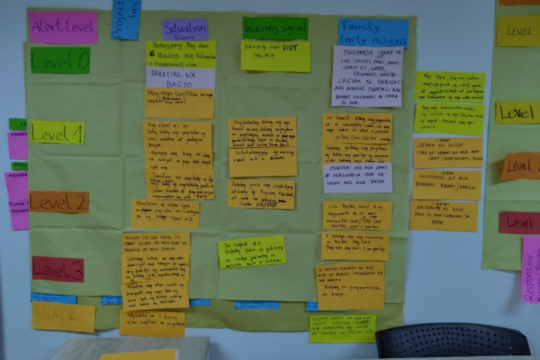
Loreine B. Dela Cruz’s professional determination is a reflection of her childhood, “My family instilled the ‘golden rule’ growing up. It taught us to share and be of service to others in need.” She has turned philosophy into productivity with over three decades of service to the marginalized and most vulnerable populations in the Philippines.
Starting her work in peace and human rights, Loreine’s conception of how humanitarian work is interrelated has expanded- “My current work includes disaster risk reduction, climate change adaptation, and mitigation and peace. This is looking at and framing the different drivers of risks in the coherence and continuum of the triple nexus of humanitarian, development, and peace.” She believes that this nexus is a commitment for all stakeholders and citizens. “We promote safe and resilient communities for a sustainable future. I value partnership engagement and networking because resilience needs to be everyone’s priority.” Gender equality requires an agenda and advocacy according to Loreine, “When you integrate gender equality into everyday work, it garners a proper place and implementation. We cannot simply look to create catchphrases that lose their essence and meaning.”
The Center for Disaster Preparedness (CDP) is an exemplary model of diversification through policy. The center recognized greater benefits at an organizational and individual level through being more inclusive. CDP reflects much of the progress made in the Philippines with nearly 80% of economic participation and opportunity gender gap. The country has the smallest gender gap in Asia. Additionally, women outnumber men in senior and leadership roles. Loreine believes that establishing the Leaders’ Table to create an open-minded and guidance-driven atmosphere, “The leaders of the organization set as an example on how an atmosphere needs to be created for open communication, support to one another up to coaching and mentoring.” She connects the global scale and the irreversible nature of climate change as a call to attention for everyone – “We can only mitigate impacts when all states and non-state actors including the whole citizenry work together.”
Despite women being more vulnerable to climate change, Loreine feels hopeful when she sees national action to address this challenge: “The Philippine Commission on Women (PCW) has this collaborative project initiative with government agencies and the private sector that invest in strategic partnerships to advance women’s economic empowerment. The collective technical expertise and resources of the private sector and government achieve great inclusivity.” She also cites the Great Women Project 2 as a collaborative engagement between private organizations to complement government efforts. The partnership works towards making a business environment responsive to women micro-entrepreneurs. More than 65% of small and medium enterprises (SMEs) are women-owned. She details that the project facilitates sustainability and competitiveness in the food, women textiles, and home-style decors for these small businesses, “The women micro-entrepreneurs are provided with technical assistance on product development, productivity, environmentally-sustainable production and entrepreneurship management including tapping platforms for marketing.”
Loreine understands that women and vulnerable groups can provide meaningful contributions and lead climate-change adaptation decisions through opportunities – “This can be done by integrating gender-based economic and political inequalities in the core adaptation action as the root causes of vulnerability. It ensures that structural inequalities faced by women and other vulnerable sections of the population are a priority.” She also advocates to map out climate change consequences in a more gender-sensitive and transformative way for a comprehensive understanding and framing, “It is imperative to invest in information and training activities dedicated for women. These actions will help strengthen women’s leadership from the communities most at-risk and also to further support their engagement in national and local climate and resilience processes.” Women’s seats in parliament remain at 28% with only 13% holding ministerial positions. Loreine also wants to see women and girls in leadership roles and changemakers for climate adaptation and mitigation – “Empowering of women and girls and amplifying their voice as equal players in decision-making is crucial and critical. Women can be trailblazers and provide the model of thoroughgoing advocates and leaders for climate change and sustainability.”

Loreine emphasizes the urgency and timeliness of the call of ‘Equality today for a sustainable tomorrow’, “We want our communities and society to be free from bias, from stereotypes, and discrimination. We want diverse, equitable, and inclusive communities and society today more than ever.”
Cover Image: Cristina Menina/ @Shutterstock.com


